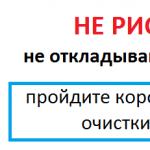Celebrated on December 10 since 1950 human rights day worldwide. The legal basis for the emergence of this holiday was the Declaration of Human Rights adopted in 1948 by the UN. The provisions of this declaration are the foundation for a number of legally binding normative acts - these are various international declarations, treaties, national laws, bills, conventions, and even some constitutions. Responsible for how the International Human Rights Day is organized and held , appointed High Commissioner.
How World Human Rights Day is Celebrated
This date in all corners of the globe is marked by large-scale events: rallies, processions, meetings and seminars. In the last few years world human rights day is marked by a slogan selected by the UN, with each slogan focusing on a specific rights issue. The participants honor the memory of those who became victims of genocide, political repression, torture, and racial discrimination. Events dedicated to this day highlight the events that stirred up society over the past year, humiliated the dignity of a person, or violated the laws of humanism. By participating in the celebration of this day, everyone has the opportunity to make the world kinder, to eradicate hatred and lack of humanity.
What does the Declaration guarantee?
The main idea behind the Declaration is the recognition that every person is born equally free and equal, regardless of race, place of birth, social status, appearance and any other factors. The declaration guarantees the following:
- All people have fundamental freedoms, which speaks of their equality;
- Fairness and respect for everyone;
- The right to life and work;
- Equality before the law;
- Free expression of thoughts;
- Basis on social security;
- Opportunity to get the desired education.
By ratifying the provisions of the Declaration, each state assumes the obligation to strictly adhere to the prescribed legal norms. The state must develop legal mechanisms to protect against violations, and citizens, in turn, must be aware of these mechanisms and be able, if necessary, to use them.
Today accepted Human Rights Day in Russia celebrate by holding various events (official and unofficial), rallies, actions. In honor of the holiday, since 2001, the A. Sakharov Prize has been established, which is awarded to journalists for outstanding deeds. During the celebration of this holiday, mass explanatory and educational work is carried out, aimed at highlighting for the people issues of human rights, their observance and protection. At various forums, meetings, seminars, the main issues related to human rights are considered and conveyed to a wide range of the population.
Read about other important ones on our portal.
On December 10, the international community celebrates Human Rights Day. On this day in 1948, the UN General Assembly adopted the Universal Declaration of Human Rights, the first universal international human rights act.
In 1950, the UN General Assembly adopted resolution 423 (V), calling on all states and interested organizations to establish December 10 of each year as Human Rights Day.
The purpose of the proclamation of this day is to draw the attention of "people all over the world" to the Universal Declaration of Human Rights as a common ideal for all peoples and peoples.
The Universal Declaration of Human Rights includes a wide range of political, civil, social, cultural and economic rights.
It is included in the Guinness Book of Records as a document translated into more than 400 languages and dialects, which indicates its universal nature and the extent of its distribution.
Although the Declaration is not a binding document, it has contributed to the introduction of more than 60 human rights instruments that have formed a single international standard in this area.
On its basis, the development of other international agreements was carried out. On December 16, 1966, the UN General Assembly adopted the International Covenant on Economic, Social and Cultural Rights and the International Covenant on Civil and Political Rights, which entered into force in 1976. The four international instruments concluded under the auspices of the UN (Universal Declaration of Human Rights; International Covenant on Economic, Social and Cultural Rights; International Covenant on Civil and Political Rights; Optional Protocols to the International Covenant on Civil and Political Rights) are often called the International Bill of Human Rights ( International bill of human rights). On the basis of these international documents, the UN Security Council can apply coercive sanctions against those regimes that allow clear violations of human rights.
Compliance with the adopted pacts, conventions and treaties on human rights is monitored by the UN High Commissioner for Human Rights, the decision to establish the mandate of which was taken in 1993 in Vienna (Switzerland) at the World Conference on Human Rights. The High Commissioner submits reports to the UN Commission on Human Rights, and through the UN Economic and Social Council (ECOSOC) forwards them to the General Assembly. The High Commissioner must take action against serious human rights violations and take preventive action.
The adoption at the 1993 World Conference on Human Rights of the Vienna Declaration and Program of Action marked the beginning of new efforts to protect and promote human rights. The Vienna Declaration and Program of Action enshrined the universal nature of human rights and the need to combat all forms of racism, discrimination, xenophobia and intolerance. The documents also emphasize the rights of women, children, minorities and indigenous peoples.
The general level of cooperation between states in the field of human rights is complemented by a regional one, which makes it possible to take into account the political, historical, cultural, economic features of the region and reflect all this in the adopted documents. These include, in particular, the 1950 European Convention for the Protection of Human Rights and Fundamental Freedoms, the 1961 European Social Charter, the 1969 American Convention on Human Rights, the 1981 African Charter on Human and Peoples' Rights, and the 1994 Arab Charter on Human Rights.
Human rights in the field of education, culture, science are provided for in the conventions adopted within the framework of UNESCO. In particular, in 1960 the Convention against Discrimination in Education was adopted. Such discrimination is any distinction, exclusion, restriction or preference, the purpose or effect of which is to destroy or violate the equality of relations in the field of education based on race, color, sex, language, religion, political or other opinions, national or social origin. , economic situation or birth.
The development of the concept of human rights has led to the fact that the rights of the child have been singled out in a special category. In 1959, the United Nations adopted the Declaration of the Rights of the Child, which proclaimed social and legal principles relating to the protection and well-being of children. In November 1989, the UN General Assembly adopted the Convention on the Rights of the Child. The Convention contains 54 articles that take into account almost all aspects related to the life and position of the child in society.
All its provisions boil down to four requirements that ensure the rights of children: survival, development, protection and participation in society.
In 1966, the United Nations Human Rights Prize was established to recognize those who have made an outstanding contribution to the promotion and protection of human rights. This prize is awarded every five years on the anniversary of the proclamation of the Universal Declaration of Human Rights. It was first awarded in 1968.
In 2013, the winners of the award were Malala Yousafzai, a 16-year-old Pakistani girl who defended the right of girls and women to education and was injured in an assassination attempt by Islamic extremists; Mauritanian Biram Dah-Abeid, who helps fight against slavery in modern world; advocate for the disabled from Kosovo, Hilmniyeta Apuk; Finnish human rights activist Liisa Kauppinen, who defends the rights of the deaf; Moroccan Khadija Riyadi. Also, the UN General Assembly awarded the prize Supreme Court Mexico for protection constitutional rights Mexicans.
On December 10, the international community celebrates Human Rights Day. On this day in 1948, the UN General Assembly adopted the Universal Declaration of Human Rights, the first universal international human rights act.
In 1950, the UN General Assembly adopted resolution 423 (V), calling on all states and interested organizations to establish December 10 of each year as Human Rights Day.
The purpose of the proclamation of this day is to draw the attention of "people all over the world" to the Universal Declaration of Human Rights as a common ideal for all peoples and peoples.
The Universal Declaration of Human Rights includes a wide range of political, civil, social, cultural and economic rights.
It is included in the Guinness Book of Records as a document translated into more than 400 languages and dialects, which indicates its universal nature and the extent of its distribution.
Although the Declaration is not a binding document, it has contributed to the introduction of more than 60 human rights instruments that have formed a single international standard in this area.
On its basis, the development of other international agreements was carried out. On December 16, 1966, the UN General Assembly adopted the International Covenant on Economic, Social and Cultural Rights and the International Covenant on Civil and Political Rights, which entered into force in 1976. The four international instruments concluded under the auspices of the UN (Universal Declaration of Human Rights; International Covenant on Economic, Social and Cultural Rights; International Covenant on Civil and Political Rights; Optional Protocols to the International Covenant on Civil and Political Rights) are often called the International Bill of Human Rights ( International bill of human rights). On the basis of these international documents, the UN Security Council can apply coercive sanctions against those regimes that allow clear violations of human rights.
Compliance with the adopted pacts, conventions and treaties on human rights is monitored by the UN High Commissioner for Human Rights, the decision to establish the mandate of which was taken in 1993 in Vienna (Switzerland) at the World Conference on Human Rights. The High Commissioner submits reports to the UN Commission on Human Rights, and through the UN Economic and Social Council (ECOSOC) forwards them to the General Assembly. The High Commissioner must take action against serious human rights violations and take preventive action.
The adoption of the Vienna Declaration and Program of Action at the 1993 World Conference on Human Rights marked the beginning of new efforts to protect and promote human rights. The Vienna Declaration and Program of Action enshrined the universal nature of human rights and the need to combat all forms of racism, discrimination, xenophobia and intolerance. The documents also emphasize the rights of women, children, minorities and indigenous peoples.
The general level of cooperation between states in the field of human rights is complemented by a regional one, which makes it possible to take into account the political, historical, cultural, economic features of the region and reflect all this in the adopted documents. These include, in particular, the 1950 European Convention for the Protection of Human Rights and Fundamental Freedoms, the 1961 European Social Charter, the 1969 American Convention on Human Rights, the 1981 African Charter on Human and Peoples' Rights, and the 1994 Arab Charter on Human Rights.
Human rights in the field of education, culture, science are provided for in the conventions adopted within the framework of UNESCO. In particular, in 1960 the Convention against Discrimination in Education was adopted. Such discrimination is any distinction, exclusion, restriction or preference, the purpose or effect of which is to destroy or violate the equality of relations in the field of education based on race, color, sex, language, religion, political or other opinions, national or social origin. , economic status or birth.
The development of the concept of human rights has led to the fact that the rights of the child have been singled out in a special category. In 1959, the United Nations adopted the Declaration of the Rights of the Child, which proclaimed social and legal principles relating to the protection and well-being of children. In November 1989, the UN General Assembly adopted the Convention on the Rights of the Child. The Convention contains 54 articles that take into account almost all aspects related to the life and position of the child in society.
All its provisions boil down to four requirements that ensure the rights of children: survival, development, protection and participation in society.
In 1966, the United Nations Human Rights Prize was established to recognize those who have made an outstanding contribution to the promotion and protection of human rights. This prize is awarded every five years on the anniversary of the proclamation of the Universal Declaration of Human Rights. It was first awarded in 1968.
The winners of the award were Malala Yousafzai, a 16-year-old Pakistani girl who defended the right of girls and women to education and was wounded by Islamic extremists in an assassination attempt; Mauritanian Biram Dah-Abeid, who helps fight against slavery in the modern world; advocate for the disabled from Kosovo, Hilmniyeta Apuk; Finnish human rights activist Liisa Kauppinen, who defends the rights of the deaf; Moroccan Khadija Riyadi. Also, the UN General Assembly awarded an award to the Supreme Court of Mexico for the protection of the constitutional rights of Mexicans.
In 2017, Human Rights Day kicks off a one-year campaign to commemorate the forthcoming 70th anniversary of the Universal Declaration of Human Rights (1948).
The material was prepared on the basis of information from RIA Novosti and open sources
This event is held for 10 minutes as an information block for the Human Rights Day. This is an introductory event in the legal block for this holiday, which. introduces students to the history and main content of the Universal Declaration of Human Rights and the Convention on the Rights of the Child, as well as the conditions for their full implementation in modern society.
Download:
Preview:
LEGAL FIVE-MINUTES
topic: “DECEMBER 10 – WORLD HUMAN RIGHTS DAY or once again about rights and not only…”
Venue: auditorium
Start of the event: 8 hours 20 minutes.
Responsible: UDP club members
Head: Snitsar N.A.
GOALS:
- Introduce students to the history and main contentthe Universal Declaration of Human Rights and the Convention on the Rights of the Child, as well as the conditions for their full realization in modern society.
- To continue developing students' skills in working with documents, making presentations and the ability to publicly present their work.
- Education of legal literacy, respect for the rights and freedoms of others.
EQUIPMENT:
- Multimedia projector, screen, laptop.
- Presentation on the topic.
- Exhibition of drawings by children of past years "I draw my rights."
(8th grade students Alina Bogomolova and Ekaterina Medvedeva)
1 host: Every person living in the world
It must be right to live like this in the world,
So that children can grow up in peace,
Without fear of hunger, war.
2 host: And everyone should know their rights
To fight back the dashing rogue,
So that before the murderer, thief and bribe taker
Our head did not bow.
2 host: The roots of this holiday go back to the 18th century, when the French
Enlighteners Charles Montesquieu, Voltaire, Diderot spoke about
The natural rights of a person, which are given to him from birth and are not
Depend on its origin. (slide 3)
1 host: Based on these ideas, bill of
Rights in the UK, Bill of Rights in the US and Declaration of Rights
Man and citizen in France . (slide 4)
2 host: In the twentieth century, the world was horrified by the cruelty of the Nazis during the Second
World War. The victims of the Nazis wereapproximate
According to estimates, more than 60 million people died, 90 million became disabled.
(slide 5).
1 host: Almost half of the victims of the war were women and children, people
Elderly age. There are millions of homeless people
Refugees, orphans.
2 host: When the public became aware of the atrocities that
committed Nazi Germany, it became clear that it was necessary
Adopt a document defining human rights throughout the world.
1 host: The Universal Declaration of Human Rights, as finalized
Paris. (slide 6)
2 host: Article 1 reads: All people are born free and equal in their
Dignity and rights. They are endowed with reason and conscience and must
Act towards each other in a spirit of brotherhood. (slide 7)
1 presenter : Article 2 states: Everyone shall have all rights and all
freedoms set forth in this Declaration, without any
there was no difference, somehow in regard to race, colour, sex, language,
religion, political or other opinion, national or
social origin, property, class or other
positions. (slide 8)
2 host: Article 3 proclaimed: Everyone has the right to life, to
freedom and personal integrity. (slide 9)
1 presenter A: Total in the Declaration of the 30th articles. They proclaimed vital
Important human rights: to equality before the law, the right enter into
Marriage and founding a family, the right to freedom of thought, conscience and
Religions, the right to work, rest, education. (slide 10 -11)
2 host: A number of articles of the Declaration of Human Rights are reflected in the Constitution of Russia.
The Constitution of the Russian Federation states that a person, his rights and freedoms are
Supreme value. Recognition, observance and protection of rights and freedoms
Man and citizen - the duty of the state
(Article 2 of the Constitution of the Russian Federation). (slide 12)
(5th grade students Ekaterina Plotnikova and Ekaterina Sosnova)
1 presenter : As soon as a child appears, and he barely starts to breathe,
He has already from the cradle - strong rights!
He has the right to live, develop and make friends;
Have a spacious good house.
To see a quiet, peaceful dream.
2 leading : Get help from doctors,
study, relax,
Be cheerful and healthy
Admire something new
And love and be loved -
He is not alone in the world!
1 leader: One of the first stepsUN General Assembly for the protection of rights
children were educated in 1946 by the United Nations Children's Fund ( UNICEF)
(slide 13)
2 host: First act of the UN relating to children's rights was adopted by the General
Assembly in 1959 Declaration of the Rights of the Child. (slide 14)
1 presenter : On November 20, 1989, the Convention on the Rights of the Child was adopted. 20 November
Celebrating Children's Rights Day. (slide 15)
twenty states, including Russia.
1 presenter : In this important document, the following rights of the child were approved:
2 leading : Equality of rights for all children regardless of race, colour, sex, language,
Religion, political or other beliefs, national,
Ethnic or social origin, property
The position, state of health and birth of the child. (slide 16)
1 presenter : Every child has the inalienable right to life and citizenship
(slide 17)
2 leading : The right to family and care. (slide 18-19)
1 presenter : The right of the child to freedom of thought, conscience and religion. (slide 20)
2 host: The right to medical care (slide 21)
1 presenter : The right to education (slide 22)
2 host: the right of the child to rest and leisure, the right to participate in games and
In recreational activities appropriate for his age, and
Free to participate in cultural life and make art.
(slide 23)
1 presenter : The right to speak one's own mother tongue(slide 24)
2 host: Children with disabilities are entitled to special care and education. (slide 25)
1 presenter : Children of many countries are learning their rights so that their childhood is
Saturated and full. (slide 26)
2 host: So that in the future they could become real people,
Knowing their rights and respecting the rights of others.
(students of the 8th grade)
1 presenter : Today, we talked about the rights that both adults and children have.
2 host: And we would like you to continue to know the world of your rights.
1 host: But at the same time, they remembered that rights also imply responsibility for their actions. (slide 27)
2 host: And if we want respect for our rights, then we must learn to respect the rights of others.
1 host: After all, only in mutual respect of rights lies the basis for the strength of our society and the rule of law.
2 host: Rights and responsibility are two aspects of human conscious activity.Rights create responsibility, responsibility guides rights
(slide 28)
1 presenter : Children draw their rights in different ways. (slides 29-32)
2 host: We announce creative competition"Children's rights through my eyes"
We will be very happy if you accept Active participation and express
In your drawings, what is important for you on this issue. (slide 33)
(5th grade students)
1 leading : He listened to his rights
And remember them well.
Just know what you really need
Respect the rights of others.
- leading : These rights cannot be taken away
Nobody and never you.
Right everyone will help
You will always be happy! (slide 34)
Human Rights Day is an international and national holiday established by the Resolution of the UN General Assembly of December 10, 1948 No. 423-V and celebrated since 1950, on December 10 annually. It was the adoption of the Universal Declaration of Human Rights in 1948 that marked the beginning of the holiday. The overall supervision of the celebration is entrusted to the High Commissioner for Human Rights. In Russia, this day marks the holding of various official and unofficial events, including various authorized rallies and demonstrations. As a rule, rallies are dedicated to events in the country and the world that cause a strong resonance in society, as unfair, inhumane and degrading people. This holiday allows each person to be involved in honoring the memory of the victims of political repression, the eradication of hatred and racial discrimination.
The man has the right
And no one dares to take away
These human rights
After all, they are given to him forever.
The right to live and choose
Have a home and not suffer
And work and study
Even the right to get married!
And love, and get involved,
And change desperately
Also, be very honest
Whether he wants to or not.
No right to kill
To add grief!
Be sure of your rights
Know they are not in words!
Happy Human Rights Day! May the right to work
And the right to rest leads to success.
Let the right to life give you freedom to breathe,
And the right to learn - to learn more!
Know your rights, do not let them be violated,
Do not violate other people's rights,
And on the holiday of all rights, smile from the heart,
To make life brighter and more joyful!
What are human rights?
It is the right to work and live.
It's right on a well deserved vacation
Relax, don't worry about anything.
It is the right to go to your church.
It is the right to raise children.
And any minute, remember
It is the right to be free!
Human rights are insanely important
We must never forget them!
Remember, we are all equal in the world,
No one should violate our rights!
Knowing the rights is fortunately our key,
You need to know your rights!
Everyone who knows the rights is powerful,
Remember this always, my friend!
human rights day today
Please accept my congratulations
Don't forget your rights guys
At the moment of making a decision.
Let law and order be honored
Let the rights protect us
May honesty and justice
Our lives are always run.
Celebrating Human Rights Day
I call on everyone, friends,
Be within the law and remember the main thing:
We cannot violate our rights.
Let everyone know their rights
Stands up for the truth,
Always follows all the rules
Let honor and dignity honor.
A man has his rights
We celebrate their day today.
They are important ... not just words,
And so I heartily congratulate you!
May grace flourish in the world
Let justice prevail.
Let no one be discouraged
Let the sky not be gloomy.
Always know your rights:
Live, love and believe, learn...
The topic may not be new.
But remember, don't be shy!
Age, gender and race are not important,
Just do not violate the rights of others!
Always be true to the truth
Choose the right path in life!
Always fight for your rights
If anyone wants to break them!
We will repeat to you tirelessly
That everyone needs to know their rights!





